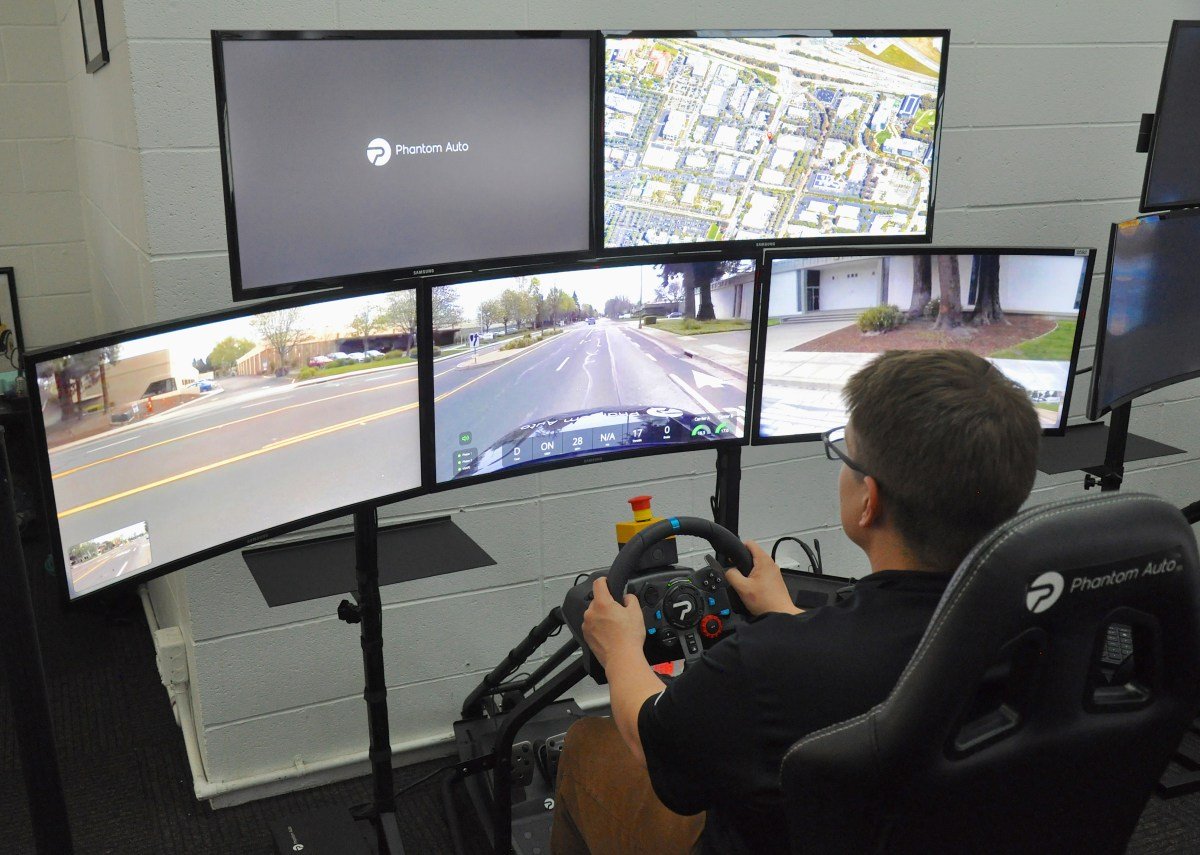Phantom Auto Shutting Down After Failed Funding Attempt
Phantom Auto, a remote driving startup that emerged onto the scene seven years ago with the excitement of autonomous vehicle technology, is now facing closure. According to sources familiar with the situation, the company was unable to secure new funding, leading to its ultimate demise.
The company, which raised a total of $95 million, had developed a teleoperation platform that allowed for remote driving of vehicles by operators located thousands of miles away. It attracted a diverse set of investors, including angel investors, venture capitalists like Bessemer Venture Partners and Maniv Mobility, private equity firm InfraBridge, and strategic investors such as ArcBest and ConGlobal. In 2023, Phantom Auto’s last raise was a significant $25 million.
Despite being in talks for a new round of funding, the deal unexpectedly fell through, according to a source who wished to remain anonymous. At its peak, the company had a staff of around 120 employees. However, this number has dwindled down to just over 100 this week, as a result of staff cuts made last year. The startup was based in South San Francisco.
The downfall of Phantom Auto is only one in a string of many startups in the autonomous vehicle technology industry that have emerged and eventually closed down. The initial buzz and investment in the space has waned as estimated timelines for the deployment of self-driving vehicles and robotaxis have been pushed back. Along with this, many have seen consolidation, shutdowns, and pivots. The past 18 months have also brought challenges for startups attempting to secure funding, leading to a wave of closures.
CEO and founder Shai Magzimof took to LinkedIn on Tuesday to announce the company’s closure:
“After seven years of efforts to reshape the future of physical labor at Phantom Auto, we’ve made the tough decision to close operations. There are various factors contributing to this, including market conditions and insufficient funding,” he wrote. “I express gratitude to our employees, investors, customers, partners, and all who’ve joined us on this journey. These times are challenging, but my primary concern is our team. We possess exceptional talent now seeking opportunities in the job market. I’m committed to providing references for our employees. Personally, I’ll be taking a pause to unwind and think about the next steps.”
Sources with knowledge of the situation say that while the company had gained traction with customer deployments, it still relied on external funding to sustain operations and expand.
Phantom Auto was initially founded in 2017 with a focus on applying its teleoperations technology to autonomous vehicles on public roadways, such as self-driving trucks and robotaxis. However, the company’s leadership soon realized that this type of large-scale commercial deployment of driverless vehicles was still many years away.
As a result, in 2019, Phantom Auto shifted its focus to logistics, specifically forklifts and yard trucks that currently have no autonomy, as well as autonomous sidewalk delivery robots. These types of vehicles operate at low speeds and, for the most part, within confined environments. The company had secure agreements with major players in the logistics industry, including Maersk, CJ Logistics, ArcBest, and autonomous sidewalk bot startup Serve Robotics.








